- Parisa Adhami
- information
- 240 views
- 0 comments
Canada's territories and provinces are the basis for improving musicians in varied folk, rock, and pop genres. These Canadian musicians have influenced the international music industry. Their impact on European music legends has had an important cultural impact in addition to the music industry. This essay provides more in-depth details about Canadian musicians, such as their lives, accomplishments, and works.
Table Of Content
- Gordon Lightfoot: The Voice of Canada’s Heartland
- Leonard Cohen: Poet, Prophet, and Enigmatic Songwriter
- The Guess Who: Trailblazers of Canadian Rock
- Rush: Masters of Progressive Rock
- Joni Mitchell: A Visionary and a Trailblazer
- Neil Young: The Godfather of Grunge
- Shania Twain: The Queen of Country Pop
- Last Words On Canadian Musicians
Gordon Lightfoot: The Voice of Canada’s Heartland
The storytelling tradition is at the top of Canadian music culture. Canadian culture is deeply ingrained in this method of producing artistic value. Over time, Canadian folk music was influenced by European colonists. The immigration of people from many different countries strongly impacted their genre of music and lyrics. Gordon Lightfoot, one of the most critical early Canadian musicians, was dubbed "Canada's greatest songwriter" for his vivid melodies and poetic lyrics.
Gordon Lightfoot emerged in the 1960s as a singer-songwriter whose music conveyed the essence of Canada’s landscapes and people. His famous songs, such as "The Wreck of the Edmund Fitzgerald" and "If You Could Read My Mind," proved a solid emotional attachment to Canadian history. Pop, country, and folk were all incorporated into Lightfoot's sound, and he impacted Canadian and foreign musicians who came after him. He became a cultural icon, providing a creative link between mainstream music and traditional Canadian folk music, and his melodies encapsulated the meaning of the nation.
Lightfoot's storytelling skills influenced later Canadian songwriters, so his impact went well beyond his own time. During the 1960s and 1970s, when Canada's ethnic identity was beginning to take shape, his powerful voice and thought-provoking lyrics were important in defining the character of Canadian music.
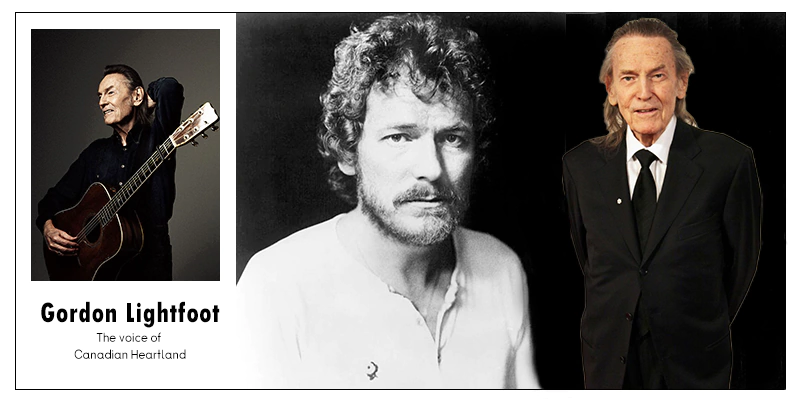
Leonard Cohen: Poet, Prophet, and Enigmatic Songwriter
The songwriter of its cities was Leonard Cohen. Before turning to music in the 1960s, Cohen, born in Montreal in 1934, first achieved fame as a poet and author. His deep, nearly hypnotic voice became his signature look as he delivered his reflective lyrics, which frequently focused on philosophical problems, love, and faith.
Cohen's most well-known song, "Hallelujah," has been covered by innumerable musicians worldwide. The song's combination of religious themes and emotions demonstrates Cohen's ability to blend the spiritual and the profane, the highly personal and the universal. His compositions are used as a standard by which songwriters evaluate human frailty and spirituality.
Despite his financial difficulties, Cohen became well-known worldwide, and his albums, including Songs of Leonard Cohen (1967) and Various Positions (1984), are regarded as masterpieces. He continued to tour and perform well into his later years, releasing well-regarded albums like You Want It Darker (2016) right before passing.
Cohen impacted British traditional literature and music because he was a skilled songwriter and singer who created memorable voices. Significant shifts in cultural aspects also impacted other artistic fields, like film and novel writing. There is no denying his legacy as one of Canada's most important cultural exports.
Cyrus Crafts; Luxury & Unique Products
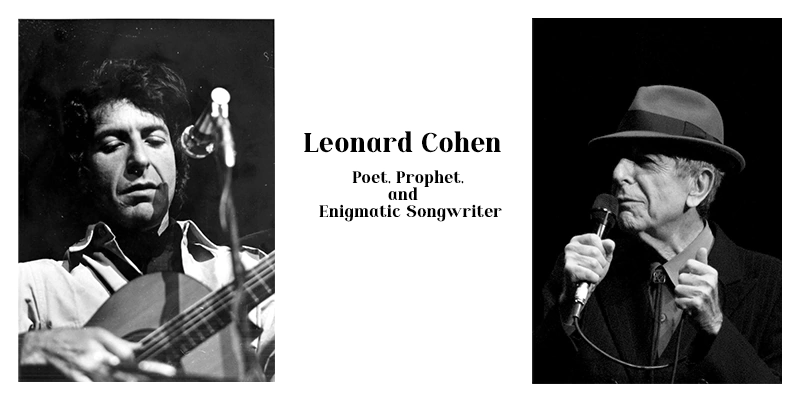
Lord Cohen is one of the most famous "Canadian writers" and poets whose songs earned international acclaim.
The Guess Who: Trailblazers of Canadian Rock
Rock has been crucial as it determines Canada's musical heritage, even though folk and vocalist customs have long been a part of the country's music. Canada produced many rock bands that would realize worldwide success in the 1960s and 1970s, contributing to the genre's development. One of the earliest Canadian rock bands to break into the American market was The Guess Who. The band, led by Burton Cummings, was founded in Winnipeg in the late 1950s and became well-known in the late 1960s thanks to songs like "American Woman," "These Eyes," and "No Time." Their blend of pop, blues, and rock influenced the style of Canadian rock music at the time.
For the first time, a Canadian band achieved a number-one hit in the United States with "American Woman." The song's raw, soulful sound proved the band's melodic flexibility, while its anti-war signal resonated with the counterculture of the age. Future Canadian rock bands achieved worldwide fame thanks to the Guess Who's success.
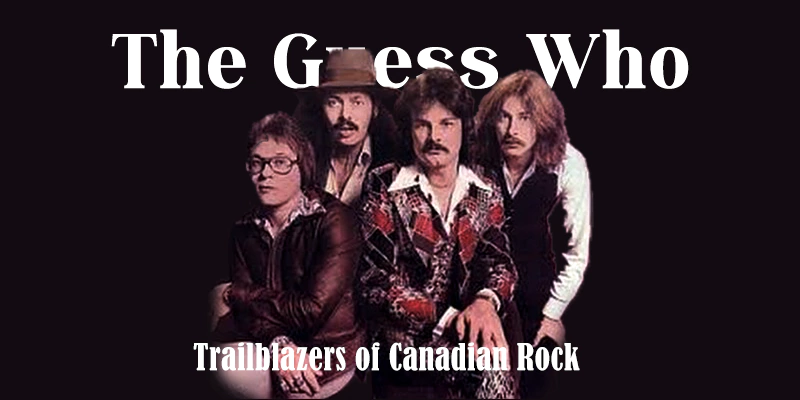
Rush: Masters of Progressive Rock
Following the 1970s of The Guess Who, Rush became one of Canada's most innovative and substantial rock bands. Rush, made up of Geddy Lee, Alex Lifeson, and Neil Peart, developed a unique sound by combining aspects of heavy metal, rock music, and hard rock. They differed from other bands of the awkward time with elaborate compositions, frequently showcasing signatures and virtuoso instrumental performances.
Progressive rock made history with album tracks like 2112 (1976), Moving Pictures (1981), and Permanent Waves (1980), which highlighted the band's technical ability and their often Peart-penned, philosophical lyrics. For the creation of music lovers, songs like "Tom Sawyer" and "Limelight" became anthems. At the same time, the band gained a reputation for musicality that is still unrivaled in rock music, thanks to their instrumental compositions.
Rush's effect went beyond rock; their experimental approach to music influenced countless songs in styles ranging from metal to alternative. They were admitted into the Rock and Roll Hall of Fame in 2013 because of their durability, which also spanned over 40 years and cemented their spot as enduring acts in rock history.
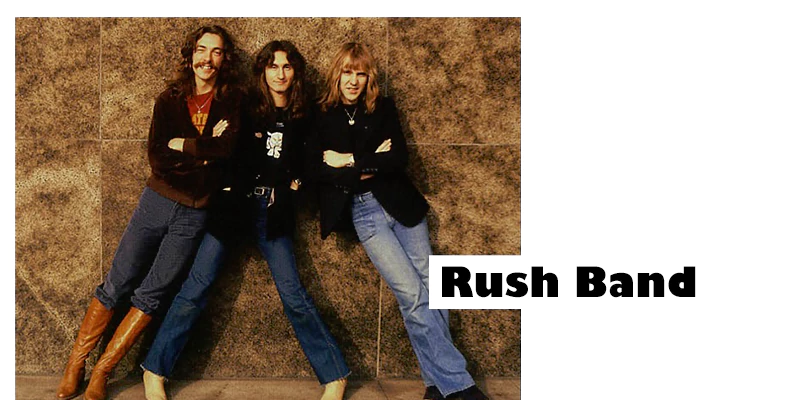
Joni Mitchell: A Visionary and a Trailblazer
As the 1960s and 1970s progressed, Canada became a breeding ground for a new wave of singer-songwriters who would profoundly impact popular music. Joni Mitchell and Neil Young emerged as two of the most critical voices in this movement, each bringing a distinct style and perspective to their music, which reflects Canadian history. Born in 1943 in Alberta, Joni Mitchell is recognized by many as one of the most excellent musicians of all time. Her music embodies genre limits, combining pop, jazz, folk, and classical music. Mitchell's contemplative lyrics often explore the stories of love, liberty, and the difficulties of interpersonal relationships. Blue, Court and Inspire, and Hejira are regarded as modern music masterpieces.
Mitchell characterized herself from her colleagues with her creative songwriting style, especially her use of complex harmonic constructions and alternate guitar tunings. Her songs, such as "Big Yellow Taxi," "A Case Wide Range of Genres You," and "Both Sides, Now," have been covered by musicians for a and have become a long duration of time.
Mitchell is a talented painter in addition to her melodic accomplishments, and many of her album artwork highlights her art. She has become a motivation to generations of musicians, especially women in the male-dominated fields of rock and folk music, because of her creative vision and defiance of industry norms.

Neil Young: The Godfather of Grunge
Neil Young, born in Toronto in 1945, has had one of rock history's most varied and notable careers. He started with his early work with Buffalo Springfield and continued through his time with Crosby, Stills, Nash & Young and his influential solo career. He has continuously pushed the limits of rock, folk, and classic rock. His voice, unalloyed guitar playing, and profoundly felt lyrics have made him one of the most acclaimed and enduring musicians.
With hits like "Heart of Gold" and "Old Man," Young's 1970 album After the Gold Rush and 1972's Harvest are recognized as underlying parts of the folk-rock genre. He is known as "The Godfather of Grunge" because of his willingness to try new sounds and styles, illustrated by his electric rock ventures with albums like Rust Never Sleeps.
Countless musicians, including folk-rock acts like Wilco and grunge bands like Nirvana and Pearl Jam, have been impacted by Young. Beyond the music, he is well-known for his vocal political views and conservationism. Young's work is still as relevant today as it was in the 1960s, even through a career spanning over 50 years.
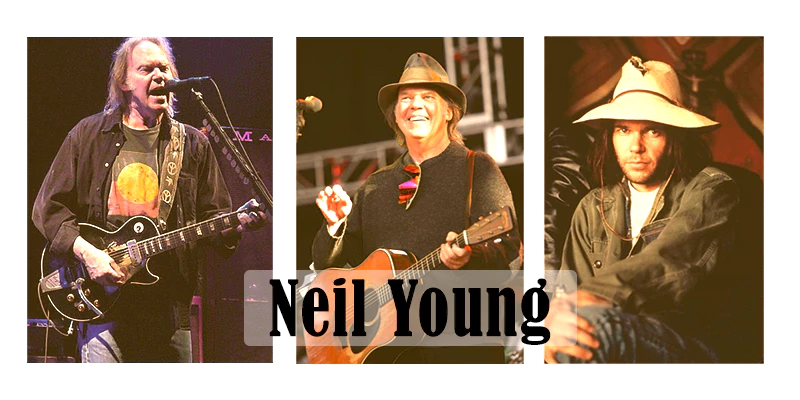
Shania Twain: The Queen of Country Pop
Even though rock and folk music have always been a part of Canada's musical identity, the nation has also produced pop stars who have had enormous international success. Two significant Canadian musicians who have dominated the global pop charts are Shania Twain and Justin Bieber.
Shania Twain was born in Windsor, Ontario, and became one of the best-selling musical artists in music history in the 1990s after a series of great nation hits. Her 1997 album Come On Over, which included hits like "You're Still Had Become the One" and "Man! I Feel Like a Woman!" was the finest studio album ever by a female artist.

Last Words On Canadian Musicians
In conclusion, a few gifted and creative musicians with eternal voices have been produced and nurtured in Canada. Among them are Leonard Cohen and the worldwide impact of artists like Drake, Neil Young, Joni Mitchell, and Celine Dion, whose music has become a center of attention in the music industry and is admired for its inventiveness. These artists reflected Canada's values of inclusivity, resiliency, and innovation while also influencing the country's cultural landscape and bridging its many cultural identities. Canada's contribution to the world music scene will surely endure as the legacy of these great musicians continues to inspire younger generations, solidifying its position as a hub for musical talent and cultural expression.








Comments (0)